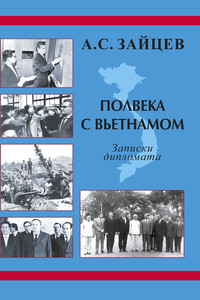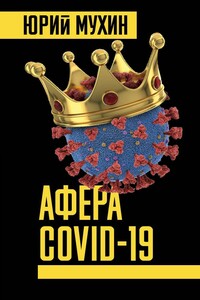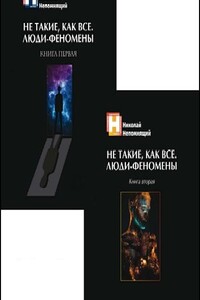The Boy Scouts In Russia - [13]
"I understand, captain. I am entirely in your hands, of course. I should like to know if it will be possible for me to return soon to Russia?"
"You must go to higher officers than myself, Prince," said the captain. "If it rested with me-! But, of course, it does not. If you see your father soon, however, will you give him my compliments? And tell him from me that I should esteem it an honor if we should meet in the field?"
"Gladly, captain. It is a pity that such good friends and neighbors as we have all been must be enemies, is it not? But it was not our doing."
Fred frowned a little.
"That sounds rather bad," he said to himself. "If this captain has lived near here, he must know a good deal about the place. And, by George, if they make a search they will find the wireless machinery that Ivan brought in with him! It may be a mighty bad thing for this house and for Russia that Boris saw me and brought me in, though it was certainly lucky for me!"
But even then Fred did not guess the extent of the trouble he had really caused. He listened intently, but for a time there was silence beyond the wall. Then he heard a murmur of voices, and guessed that a report of the search for him was being made. And then the captain's voice boomed out.
"Prince," he said, "I must ask you to come with me and to consider yourself under arrest. It is very painful but those are my orders. Colonel Goldapp wishes to see you. I think it is only a form."
"What? You will take me away?" Fred caught the dismay in his cousin's tone, and winced slightly. But then he understood that it was not fear for himself that moved Boris, but anxiety lest the important plans of which he was such an essential part should be spoiled. "But my father-he thinks that I am safe here until he can make arrangements for me to return to Russia."
"I am sorry." The German's tone, gruff though it was, was by no means unkindly. "Orders, however-I have no choice. Doubtless you will be allowed to return as soon as the colonel has seen you."
"Well, there is no use in arguing, of course," said Boris. He raised his voice, and Fred understood that what followed was meant especially for his ears. "Where will you take me, Herr Hauptmann?"
"Colonel Goldapp's quarters are at present in the parsonage near the village. You will be examined there, Prince. We shall be there to-night, at least, perhaps longer."
"I see. I will be ready in a few moments. Will you excuse me if I write some instructions for Vladimir, who will be in charge after I go? You may, of course, read what I write."
"Assuredly."
Then there was silence. The room outside was so quiet that Fred had a chance to realize how perfectly the place in which he was hidden served its purpose. He could hear the heavy breathing of someone near the wall. Then a chair scraped along the floor, and in a moment he heard the scratching of a pen. And then there came a new sound, a tapping, as with two fingers. That was Boris, and quite suddenly Fred understood. Boris was tapping out a message to him in telegraphic code.
"You must take charge here," Boris tapped with his fingers. "I will tell Vladimir to get you as soon as it is safe. The parsonage where I will be taken is very near the outlet of the secret passage. If Ivan returns, tell him I am there, and that I will sing or whistle the song of the Volga boatmen from time to time, so that he may know the window of my room, if there is no guard in the room with me. Do not answer, for they might hear."
"Good boy! He certainly has nerve!" said Fred to himself, admiringly. "He doesn't know what's going to happen to him next, but he is certainly doing all he can to make things come right."
Then there was a new confusion of noise outside. Fred heard Boris call Vladimir and speak to the old servant in Russian. Then the German officer gave Vladimir his instructions.
"This place will be left alone for the present," he said. "Prince Alexander Suvaroff has been a good friend and neighbor, and, though he is an enemy, we desire to respect his property as long as possible. But neither you nor any who are left in the house with you must go out-this for your own safety-except to get food and then go yourself."
Fred heard a general movement then, and guessed that they were going out. Silence followed, and, after listening for a time, he decided upon an exploration of the secret passage. A vague plan was taking form in his mind already. It seemed to him that, as he was at liberty, he should do anything that was in his power to free Boris. Until he knew more of the lay of the land, he could not even make a real plan, but it was possible, he thought, that something that was in his mind might easily prove to be feasible.
It was easy, with his torch and the guiding arrows, to follow the devious, winding course of the passage. He surmised that its ascents and descents, which seemed arbitrary and unreasonable as he pursued them, were due to other entrances than the one he knew. It would be necessary, as he could understand, to have more than one means of getting in and out of such a passage. And when he found himself at last going in a straight path which sloped easily downward, he guessed that he was beyond the house, and that he had come to a part of the passage that led to the outer world.

В основу книги положены личные впечатления автора о командировках во Вьетнам в период 1961–2011 гг. Вошедшие в сборник очерки основаны на малоизвестном широкому читателю фактическом материале, это своеобразный дневник, живое свидетельство непосредственного участника и очевидца многих важных событий в истории отношений наших двух стран. «Эта книга, – пишет автор, – скромная дань любви и уважения героическому, трудолюбивому и талантливому народу Вьетнама, с которым судьба связала меня на протяжении более полувека».В формате PDF A4 сохранен издательский макет.

«Лолита» Владимира Набокова не просто произвела фурор среди современников писателя — она и по сей день остается одним из самых популярных романов в мире. Однако мало кто знает, что сюжет книги во многом вдохновлен историей похищения Салли Хорнер, одиннадцатилетней девочки, о которой Набоков узнал из газет. Сара Вайнман, журналистка и редактор сайта CrimeReads, впервые с 1950-к голов проливает свет на трагическую судьбу Хорнер и описывает обстоятельства, в которых был создан нашумевший роман Набокова.

В книге рассказывается история главного героя, который сталкивается с различными проблемами и препятствиями на протяжении всего своего путешествия. По пути он встречает множество второстепенных персонажей, которые играют важные роли в истории. Благодаря опыту главного героя книга исследует такие темы, как любовь, потеря, надежда и стойкость. По мере того, как главный герой преодолевает свои трудности, он усваивает ценные уроки жизни и растет как личность.

Тайна перевала Дятлова раскрыта. Хамар-Дабан, убийство Зои Федоровой, Бермудский треугольник, смерти Есенина и Маяковского, загадка Ванги, самое жуткое и загадочное преступление в мире. В этой книге вы найдете ответы на тайны, будоражащие воображение людей всего мира.

«Доктор, когда закончится эпидемия коронавируса? — Не знаю, я не интересуюсь политикой». Этот анекдот Юрий Мухин поставил эпиграфом к своей книге. В ней рассказывается о «страшном вирусе» COVID-19, карантине, действиях властей во время «эпидемии». Что на самом деле происходит в мире? Почему коронавирус, менее опасный, чем сезонный грипп, объявлен главной угрозой для человечества? Отчего принимаются беспрецедентные, нарушающие законы меры для борьбы с COVID-19? Наконец, почему сами люди покорно соглашаются на неслыханное ущемление их прав? В книге Ю.

Феномен человека и загадка его происхождения волновали людей с глубокой древности. Но само понятие «феномен человека» вел в научный оборот известный французский мыслитель Пьер Тейяр де Шарден, который так и назвал одну из своих главных книг. Кроме своей целостности человек несет в себе черты уникальности: хоть все мы люди, каждый из нас неповторим, и случается, что особенности отдельных людей носят столь уникальный характер, что о них говорят не иначе как о чудо-людях, необыкновенном порождении человеческой природы.